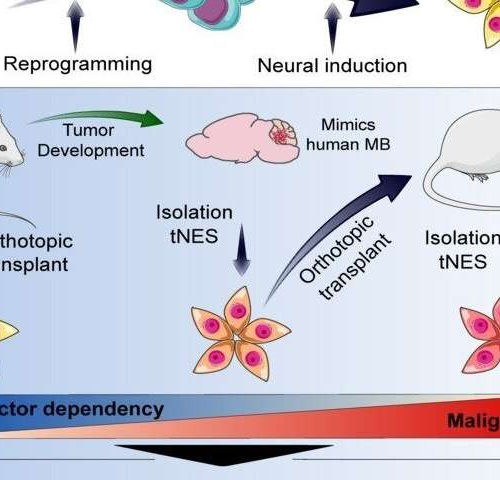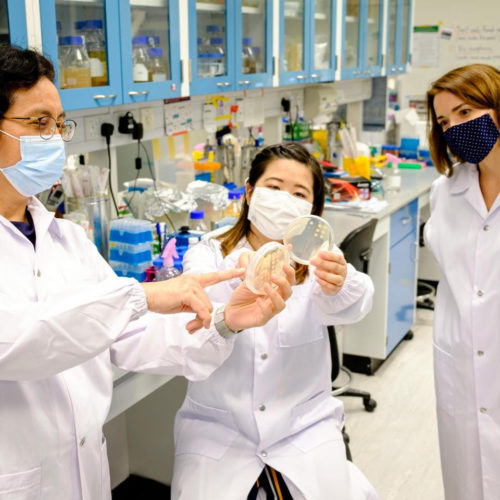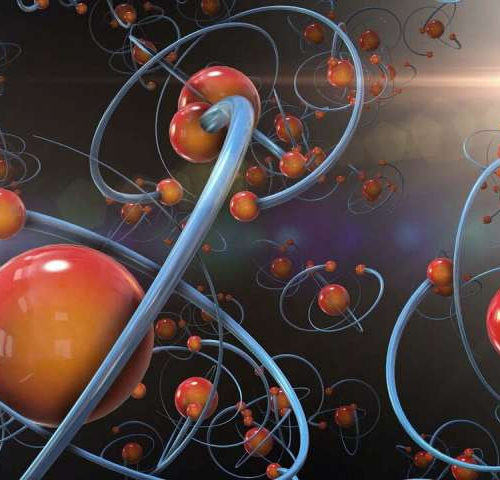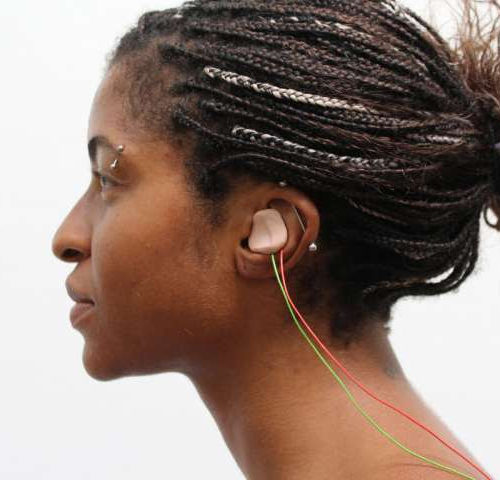by Tabea Kemna, Karolinska Institutet In an interdisciplinary study combining stem cell biology and tumor biology, researchers from Karolinska Institutet (as well as Uppsala and Lund University, together with researchers in Canada, Germany and France), have succeeded in creating a new type of stem cell model for studies on cancer of the brain. The study...
CU researcher: Non-hormonal treatment for menopausal symptoms offers hope of relief
UNIVERSITY OF COLORADO ANSCHUTZ MEDICAL CAMPUS AURORA, Colo. (Aug. 6, 2020) – A non-hormonal therapy to treat hot flashes and other symptoms associated with menopause was found to be effective in a recent clinical trial, according to a published study by a team of researchers including faculty from the University of Colorado School of Medicine....
Chemists build natural anti-cancer compound with lean new process
Scripps Research collaborators develop a way to seamlessly create the compound’s complex structure SCRIPPS RESEARCH INSTITUTE CHEMISTS HANS RENATA, PHD, AND ALEXANDER ADIBEKIAN, PHD, BOTH OF SCRIPPS RESEARCH, SAY THE BACTERIAL EXTRACT CEPAFUNGIN I IS IN THE SAME CLASS AS SEVERAL FDA-APPROVED ANTI-CANCER DRUGS, WITH SOME… view more CREDIT: SCRIPPS RESEARCH JUPITER, FL–Scripps Research chemists...
REM sleep tunes eating behaviour
by University of Bern Using a technique called optogenetics, the activity of cells in the brain can be specifically suppressed with light pulses. Credit: Pascal Gugler / Insel Gruppe Despite our broad understanding of the different brain regions activated during rapid-eye-movement sleep, little is known about what this activity serves for. Researchers at the University...
An Age-Related Increase in CD47 Expression Impairs Vascular Function
This news or article is intended for readers with certain scientific or professional knowledge in the field. Researchers here provide evidence to indicate that increased expression of CD47 in aged blood vessels impairs a range of functions, from maintenance of these tissues to the generation of new blood vessels. The latter point is interesting given...
NTU develops peptide that makes drug-resistant bacteria sensitive to antibiotics again
Peptide also kills multidrug-resistant bacteria on its own NANYANG TECHNOLOGICAL UNIVERSITY SCIENTISTS AT NTU HAVE DEVELOPED A SYNTHETIC ANTIMICROBIAL PEPTIDE THAT MAKES DRUG-RESISTANT BACTERIA SENSITIVE TO ANTIBIOTICS AGAIN. ON ITS OWN, THE PEPTIDE CAN ALSO KILL BACTERIA THAT HAVE GROWN RESISTANT… view more CREDIT: NTU SINGAPORE Scientists at Nanyang Technological University, Singapore (NTU Singapore) have...
Researchers discover molecule that may be linked to athletic performance
by University of Bergen Carnosine and its precursor beta-alanine increase muscle strength, and have recently become extremely popular as dietary supplements in competitive sports. Researchers at University of Bergen, Norway, have recently discovered an enzyme that forms beta-alanine from the common amino acid aspartic acid. “This contrasts conventional wisdom that most beta-alanine is generated by...
HDAC6 can control tumor growth and halt metastasis in triple-negative breast cancer
by George Washington University Genetic modifier HDAC6 was found to control tumor growth and halt metastasis in triple-negative breast cancer in vivo, according to a new study published in the top-tier journal Cancer Research by investigators at the George Washington University (GW) Cancer Center. Immunotherapy—the use of drugs to stimulate one’s own immune system to...
Non-invasive nerve stimulation boosts learning of foreign language sounds
by University of Pittsburgh New research by neuroscientists at the University of Pittsburgh and University of California San Francisco (UCSF) revealed that a simple, earbud-like device developed at UCSF that imperceptibly stimulates a key nerve leading to the brain could significantly improve the wearer’s ability to learn the sounds of a new language. This device...
Brain waves can be used to predict future pain sensitivity
by University of Birmingham Rhythms produced by the brain can reliably be used to predict how sensitive we are to pain, new research shows. The living brain is constantly producing regular rhythmic patterns of activity, which can be compared to musical notes. Scientists at the University of Birmingham in the UK, and the University of...









